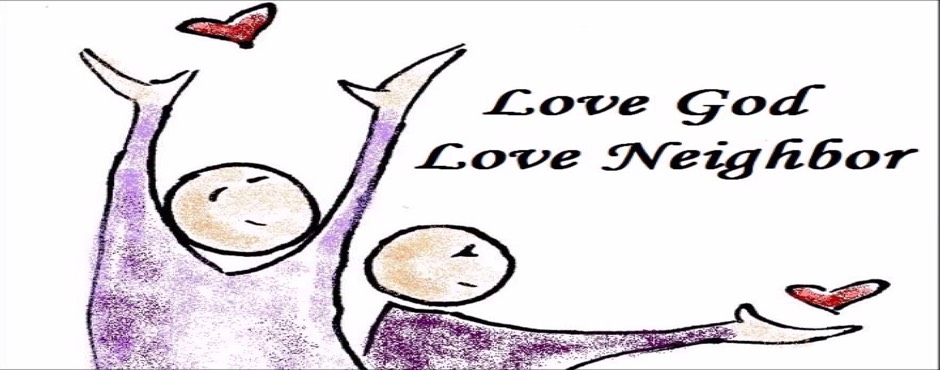When I was in seminary, I had a Scripture professor who, when someone would make an insightful comment or answer a question correctly, would exclaim, quoting Jesus in today’s Gospel reading, “You are not far from the kingdom of God!” That comment, made to the scribe at the end of the reading, is an amazing thing to hear Jesus say, because he was always berating the scribes and Pharisees for not getting it, for being so concerned about dotting every “i” and crossing every “t” of the law, that they totally missed the spirit of the law. Jesus always maintained that they were going to completely miss out on the kingdom of God because of this blindness. So here is a scribe who actually gets it, who knows what the first of all of the commandments is. But somehow, in the tone of his congratulatory statement, I think Jesus is throwing in a bit of a challenge to the scribe: now that you know it, it’s time to live it.
The way it plays out, of course, is typical of the way we see the religious establishment interacting with Jesus in the Gospel narratives. One of them approaches Jesus, most likely not out of an interest in actual dialogue or even to learn something, and asks a question to which they already know the right answer. The question “Which is the first of all the commandments?” is one that scholars had long debated, because there were so many commandments. Not, of course, just the ten that we are familiar with, but, throughout all of the Hebrew Scriptures, more than six hundred! But the answer that Jesus gives is one that is well-accepted. In fact, it is a part of scripture that Jews memorized and taught their children to memorize. One that boiled it down to what worshipping One God meant:
Hear, O Israel!
The Lord our God is Lord alone!
You shall love the Lord your God with all your heart,
with all your soul,
with all your mind,
and with all your strength.
But here’s the point where it really gets interesting: Jesus goes him one better, saying:
The second is this:
You shall love your neighbor as yourself.
There is no other commandment greater than these.
The scribe hadn’t asked for two greatest commandments, but if he had, he probably would have picked that second one too. These two commandments boiled down all of the teaching of the law and the prophets into a neat, concise package: love God and love neighbor. This was foundational to the Jewish way of life, and having been quoted so quickly, without thinking, by Jesus, no one was brave enough to ask him any more questions. The scribe goes away close to the kingdom of God, if he will stop asking questions and actually living the law and the prophets.
That challenge is there for us, too, of course. Love of God and love of neighbor, loving the way God has loved us, this is the heart not just of the Old Testament law and the prophets, but also of the Gospel itself. God, who loved us enough to send his only Son, so that we might believe in him and have eternal life, also sent that Son to show us the way. So this Gospel interaction is foundational to our call as disciples. In order to be on course for the kingdom of God, a place we all want to be, we have to love God and love our neighbor. The kingdom of God is not a far-off distant thing or place to be achieved in the afterlife, but is in fact here among us, as Jesus proclaimed all through his life on earth. One gets to it by love of God and love of neighbor, by living the love that God has so freely given us. That is why living these commandments from our hearts is worth more than all burnt offerings and sacrifices. So love of God and love of neighbor, the heart of the Judeo-Christian life, needs to be the center of everything we think or say or do. Love of God and love of neighbor needs to be the lens through which we see everything.
So, friends, that means that we have to bring that lens with us to see the way through every interaction of our lives. Not just the ones that are easy and joyful, but also the interactions that are frustrating and painful. We have to love God and neighbor when the guy cuts us off on the highway; when the customer service agent puts us on hold for the fourth or fifth time; when we or a loved one get a frightening diagnosis and we have to navigate the healthcare system; when our coworkers drop the ball and make us look bad; when our children make poor decisions; when we disagree with a spouse or loved one; when a government official makes a terrible decision; and all the rest. Then it’s time, not just to say “okay, whatever, that’s fine” but instead to make decisions and corrections and advocate for the truth and do what is right, but do it all with love and grace, and with trust in God’s love and mercy.
The Liturgy of Our Lord Jesus Christ, the King of the Universe, which we will celebrate in a few weeks, calls on us to work with God to put forward, here on earth, a kingdom of love and peace, a kingdom of justice and truth. You’ll hear that quote in the preface to the Eucharistic Prayer that day. That’s what our life on earth is all about. We truly are not far from the kingdom of God. All we have to do is to love God, love neighbor, and enter in.
